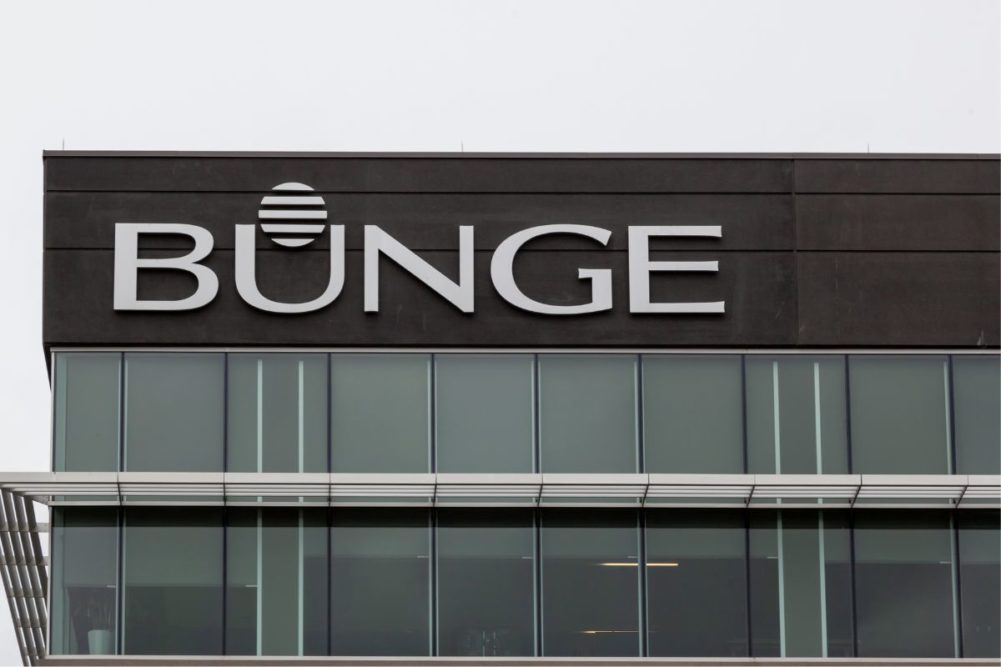ST. LOUIS, MISSOURI, US — Net income at Bunge soared during the second quarter as the St. Louis-based company relied on its agility to maneuver amid a dynamic environment, said Gregory A. Heckman, chief executive officer.
“We were able to use our footprint and value chain connectivity to optimize margins as market conditions changed later in the quarter,” Heckman noted during an Aug. 2 conference call with analysts. “While volatility can provide opportunities, it’s difficult to predict the timing and where within the value chain those opportunities for upside will appear. However, our ability to execute in rapidly changing environments gives us confidence that we can create value over the long term. We also saw benefits from our investments in maintenance and productivity with improved reliability and reduced the amount of unplanned downtime across our platform.”
In the second quarter ended June 30, Bunge posted net income of $622 million, equal to $4.09 per share on the common stock, up sharply from $206 million, or $1.34 per share, in the previous year’s second quarter. The year-ago quarterly results included charges of $233 million related to a mark-to-market timing difference and $68 million in other charges. Adjusted earnings were $3.72 per share, up 25% from $2.97 per share in the previous year’s second quarter. Net sales in the second quarter were $15.05 billion, down 16% from $17.93 billion in the second quarter of the previous year.
In Bunge’s Agribusiness, EBIT of $785 million was up from $93 million in the second quarter of 2022. When adjusting for a mark-to-market timing difference and certain charges, EBIT was $674 million, up 75% from $386 million in the previous year’s second quarter. Volume decreased 6.4% to 18.26 million tonnes from 19.49 million tonnes.
“In Processing, higher results in the quarter reflected better year-over-year performance across all value chains, driven in part by strong Brazil soybean origination, which contributed to higher crush results in Brazil and our destination crush operations in Europe and Asia,” said John W. Neppl, chief financial officer. “In the US, results were also higher as we entered the quarter with a significant portion of our capacity locked in at higher margins.
“In Merchandising, higher results in global oils and grains were more than offset by lower results in our financial services and ocean freight operations, which had difficult comparisons to a particularly strong prior year.”
In the Refined and Specialty Oils segment, second-quarter EBIT of $217 million was virtually unchanged from $218 million reported in the second quarter of the previous year. Net sales fell 19% to $3.6 billion from $4.45 billion. Volumes were 2.21 million tonnes, down from 2.32 million tonnes. Bunge said stronger results in North America driven by foodservice and fuel demand were offset by slightly lower results in Europe, South America and Asia.
The Milling segment posted EBIT of $14 million, down from $97 million. Net sales fell 28% to $490 million from $677 million. Volume was 844 million tonnes, down 26% from 1.14 million tonnes in the previous year’s second quarter. Lower results in the quarter primarily were driven by the company’s operations in South America, which were adversely affected by a small Argentine wheat crop, Bunge said.
Over the first six months of the fiscal year Bunge companywide posted net income of $1.25 billion, or $8.24 per share, up 40% from $894 million, or $5.81 per share, in the same time of the previous year. Six-month net sales of $30.38 billion were down 10% from $33.8 billion in the same period of the previous year.
Taking into account the first-half results and the current margin environment, Bunge increased its full-year 2023 adjusted EPS to $11.75 per share, up from the $11 forecast when first-quarter results were announced.






